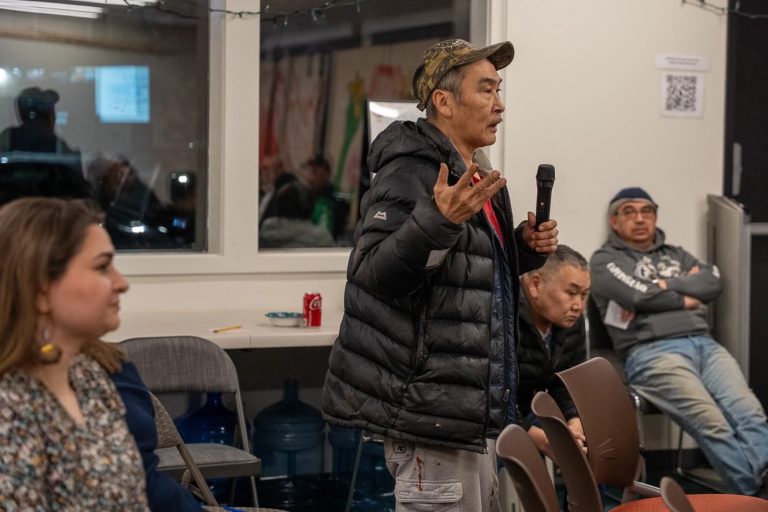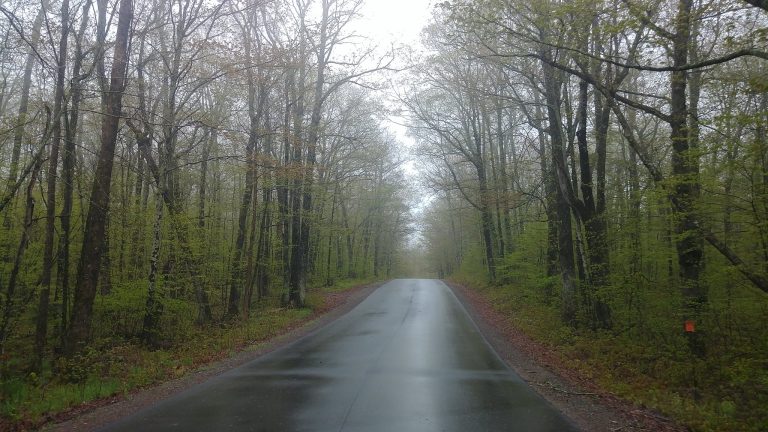Podcast: Play in new window | Download | Embed
In a 6-3 ruling this week, the Oklahoma Supreme Court says a Native citizen living on her reservation isn’t exempt from state income tax.
The Journal-Record reports that Alicia Stroble, a member of the Muscogee Nation, had argued that her income was exempt because she lived and worked on her tribe’s land.
In 2020, Stroble had filed three Oklahoma Individual Income Tax Returns for the three previous years.
She said the U.S. Supreme Court decision in the case, McGirt v Oklahoma, supported her stance as that ruling reaffirmed the existence of the Muscogee Nation’s reservation.
Two years later, the Oklahoma Tax Commission denied her exemption, leading to an appeal and the case making it up to the state’s highest court.
The definition of “Indian Country” was deliberated in oral arguments last year.
The Oklahoma Justices said McGirt doesn’t apply to state tax law.
In an opinion, they said that extending McGirt to pre-empt Oklahoma from taxing the income of tribal members residing on unrestricted, non-trust, private-fee land must come from the nation’s highest court.
Gov. Kevin Stitt (Cherokee/R-OK) praised the ruling, saying he rejects race-based tax exemptions.
Tribal leaders have denounced the ruling as inconsistent and a form of “legal gymnastics”.
The Muscogee Nation said they are reviewing their next steps.

Quincy Adams prepares to jump on a sealskin blanket during Nalukataq festival in Utqiagvik in June 2025. (Photo: Sarah Betcher)
Several coastal Arctic communities hosted festivals throughout June to celebrate a successful whaling season.
In Utqiagvik, that meant four full days of sharing subsistence food, prayers, dance, and traditional blanket toss.
It also meant gathering as a community, in joy and in loss.
The Alaska Desk’s Alena Naiden from our flagship station KNBA has more.
Trigger warning: This story discusses suicide
Whaler Quincy Adams soars above a seal blanket at Simmonds Field in Utqiagvik, with a bag of candy in his hands. He leaps even higher and tosses the kaleidoscope of sweets, as the children around him whoop with joy and catch treats.
Adams is one of the captains of the Aaluk whaling crew. They were among those who landed a bowhead whale this spring and threw a feast for the community – especially for elders and widows who can’t hunt for themselves.
On a recent visit to Anchorage, Adams watched his kids play in a park as he reminisced on the season.
“It’s all for the community, not just for us or our crew. It’s to make sure everybody gets a bite to eat, to make sure that nobody goes hungry. Feeding our people.”
Nalukataq, which means blanket toss in Iñupiaq, is a traditional celebration of the successful bowhead harvest.
The whaling crews serve several courses of subsistence dishes throughout the event: caribou, duck and geese soup, donuts, boiled whale meat, muktuk, akutaq, and a delicacy – fermented whale meat and blubber, or mikigaq.
When the feast is over, the whalers stretch a sealskin blanket, inviting everyone to jump on it. Then, the crowd moves indoors and continues with Inupiaq dancing and drumming throughout the night.
This year’s Nalukataq also had an emotional side for Adams.
A young member of their crew died by suicide earlier this year and the crew opened the event with a prayer and a message of hope.
“It’s just something we wanted to get out to the other people and to the young people and the teens, tell them that there is hope, there is family that loves them, and if they need to talk to somebody, talk to somebody.”
Whaling captain Herman Ahsoak says that dedicating Nalukataqs to those who passed is not new. He says the event is about the community coming together.
“We put on the blanket and jump and let it all out on the blanket and just jump for joy.”
The communities of Wainwright, Kaktovik, Nuiqsit, and Point Hope also celebrated whaling festivals in June.
If you or someone you know is in crisis, call or text the 988 Suicide Crisis Lifeline.
 And this Saturday, Minnesota’s first-ever Native American Food Truck Festival kicks off in St. Paul.
And this Saturday, Minnesota’s first-ever Native American Food Truck Festival kicks off in St. Paul.
Minneapolis-St. Paul Magazine says more than 20 Native food trucks will serve up both traditional and urban Indigenous fair foods at Harriet Island Regional Park.
@makingitinminnesota ✨ FREE Twin Cities Event Spotlight This Saturday, July 5, head to Harriet Island Regional Park in St. Paul for the Native American Food Truck Festival. It’s happening from 11 AM to 7 PM! Swing by to try out some incredible food. It’s the first ever in Minnesota so it should be a good time! I also briefly mention Taste of Minnesota in this video, but you can check out my full breakdown of that event in a previous post 🎶 And don’t forget: my full weekend guide of free Twin Cities events drops on Thursday, July 3. Follow along so you don’t miss it! #NativeAmericanFoodTruckFestival #StPaulEvents #HarrietIsland #IndigenousFood #TwinCitiesWeekend #TasteOfMinnesota #FreeEventsMN #ThingsToDoMN #MinneapolisEvents #StPaulEats #TwinCitiesEats #MNWeekendGuide #LocalEventsMN ♬ original sound – Maggie in Minnesota
Get National Native News delivered to your inbox daily. Sign up for our daily newsletter today.



